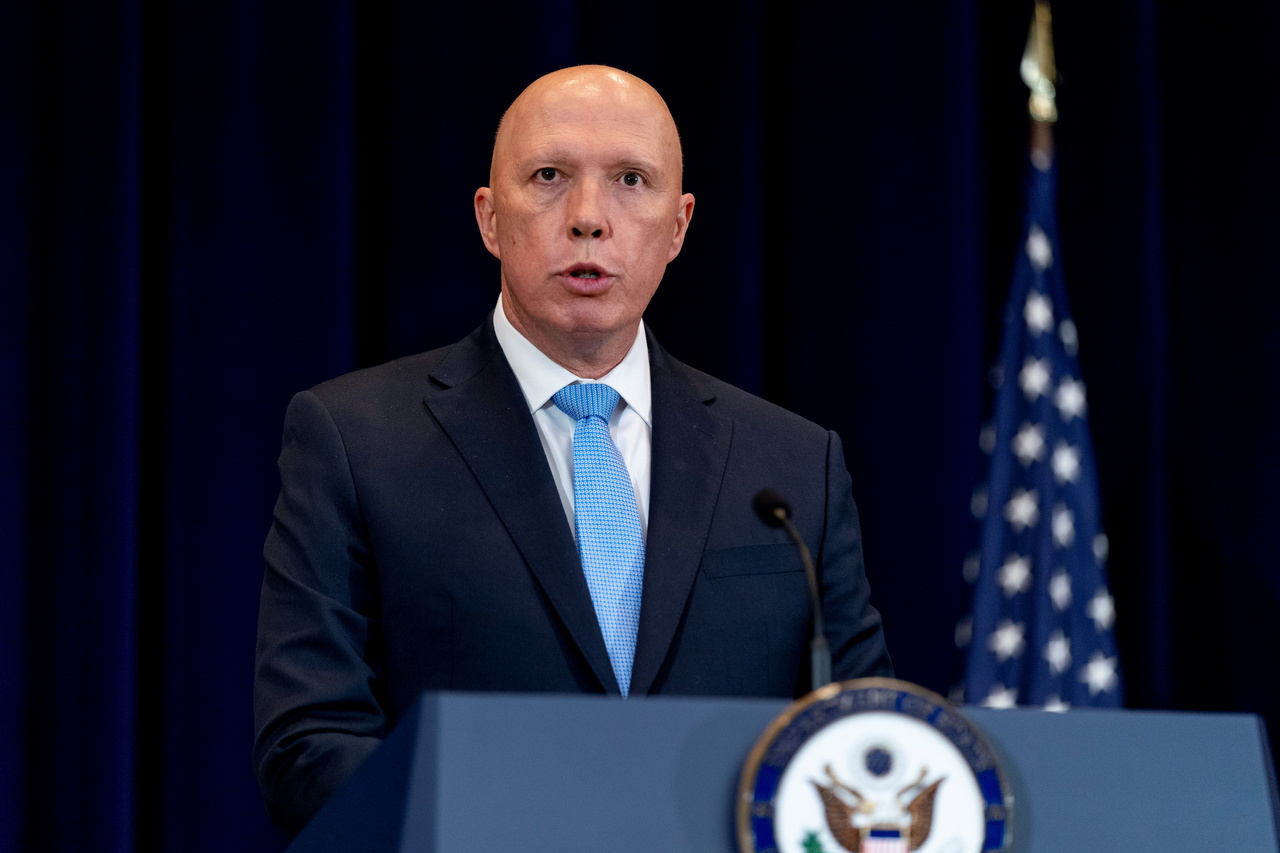Australia accuses China of paying bribes to win deals after Solomons pact
Sign up now: Get ST's newsletters delivered to your inbox

Defence Minister Peter Dutton made the allegations as his conservative government faced questions in the run-up to the May 21 general election.
PHOTO: REUTERS
Follow topic:
SYDNEY (AFP) - Australia's Defence Minister on Sunday (April 24) accused China of paying bribes for international deals, but refused to say whether corruption played a role in Beijing's newly signed defence pact with the Solomon Islands.
Mr Peter Dutton made the allegations as his conservative government faced questions in the run-up to the May 21 general election about how China apparently outmanoeuvred Australia by securing the agreement.
Critics of Prime Minister Scott Morrison have called the pact
Australia’s biggest diplomatic failure in the Pacific since World War Two.
Australia’s biggest diplomatic failure in the Pacific since World War Two.
The deal shocked the Solomon Islands' traditional allies, Australia and the United States, which fear it may give China a military foothold in the South Pacific less than 2,000km from Australia's coast.
"The Chinese don't play by our rules," Mr Dutton said.
"If you look at what has happened in Africa, there are corrupt payments being made," he told Sky News Australia.
"We can never compete with that sort of playbook. We have values and we have the rule of law that we abide by."
Asked specifically if he believed corrupt payments were made to forge China's deal with the Solomon Islands, which was announced by Beijing on April 19, the minister said he could not comment.
"The reality is that China has changed," he added.
"China's incredibly aggressive acts of foreign interference, the preparedness to pay bribes to beat other countries to deals - that is the reality of modern China."
A draft of the pact shocked countries in the region when it was leaked last month, particularly measures that would allow Chinese naval deployments to the Solomons.
China has said the pact will help the Solomon Islands maintain social order and cope with natural disasters and humanitarian relief. It said it poses no risk to the United States, while the Solomon Islands said it will not undermine regional peace.
A White House delegation visited the Solomon Islands capital Honiara on Friday to warn of repercussions if China was to establish a permanent military presence in the Pacific nation under the new agreement.
The White House said the officials had told Prime Minister Manasseh Sogavare that the recently signed pact had "potential regional security implications" for Washington and its allies.
"If steps are taken to establish a de facto permanent military presence, power-projection capabilities or a military installation, the delegation noted that the United States would then have significant concerns and respond accordingly," the White House said in a statement.
'No military base'
National Security Council Indo-Pacific coordinator Kurt Campbell and Assistant Secretary of State for East Asian and Pacific Affairs Daniel Kritenbrink led the delegation, which also included Pentagon officials.
According to the White House statement, Mr Sogavare "reiterated his specific assurances that there would be no military base, no long-term presence and no power projection capability, as he has said publicly".
Mr Sogavare's government severed ties with Taiwan in September 2019 in favour of diplomatic relations with China, unlocking investment but stoking inter-island rivalries.
Last November, protests against Mr Sogavare's rule sparked violent riots in the capital, during which much of the city's Chinatown was torched.
While the unrest was partly fuelled by poverty and unemployment, anti-China sentiment was also cited as playing a role.
When asked about China's influence in the Pacific, Morrison told reporters on Friday that Beijing was exerting "enormous pressure" on leaders of Pacific island nations.
Chinese Foreign Ministry spokesman Zhao Lijian in turn accused "Australian politicians" of "coercive diplomacy" in the region.
Speaking to journalists later in the day, Morrison said China building a military base on the Solomon Islands would be a “red line” for Australia.
“Working together with our partners in New Zealand and of course the United States, I share the same red line that the United States has when it comes to these issues,” ABC News quoted the prime minister as saying.
“We won’t be having Chinese military naval bases in our region on our doorstep.”
The embassies of China and the Solomon Islands in Canberra did not respond to requests for comment outside business hours.
Morrison looked to deflect criticism by shifting the debate to his economic policy, promising to not introduce any taxes if re-elected, and to cap government tax revenue at 23.9 per cent of gross domestic product.
The policy also involves giving workers A$100 billion (S$99.2 billion) in tax relief over the next four years.

